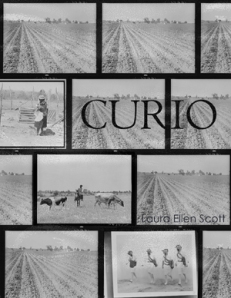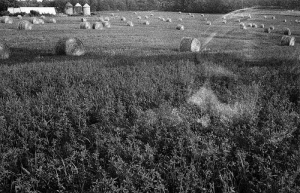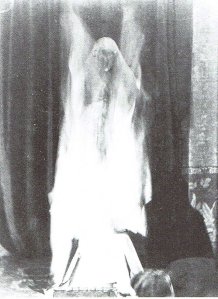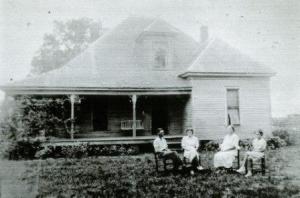I heard about Curio via JMWW’s wonderful interview with the author, Laura Ellen Scott, in their Winter 2012 issue. The book is a collection of 21 short stories, published by Uncanny Valley Press in January ’11, and available for the cost of a Tweet or Facebook post (re: free) on their website. To put it simply, you should not pass up this offer. Curio is one of the best fiction collections I’ve read in some time. Laura Ellen Scott’s writing takes a look below the surface of rural America, both past and present, and should provide a pleasant chill to anyone who longs for the understated ghost stories of authors like M.R. James and Algernon Blackwood.
In the JMWW interview, Scott admits, “I’m actually not good with ‘I’m-on-the-first-step-Johnny’ style suspense. What I love about horror is the stuff itself—the objects, shadows, etc.” Literary types tend to turn their nose up at horror but serious fans know that what Scott describes is the real pleasure and value of the genre. Curio forgoes the trappings of traditional horror novels or splatterpunk. Instead, Scott literally conjures up scenes before our eyes: parking lots made of mud, empty fields, the moonless sky, ramshackle cabins. Just these as these stories become as vivid as life in the reader’s mind, they dissipate into vapor. Laura Ellen Scott’s power is in evocative suggestions that should ring true to anyone who has spent time in the lonelier places of rural America.
Amazingly, Laura Ellen Scott reveals that all of these stories are based on actual events. “Last Seen Leaving” explores the fate of a girl named Shasta who, denied re-entry to a Metallica concert, disappeared and was not seen again until eight years later when her corpse was excavated from the mud of a cow field. Scott links the death with that of the girl’s ancestor, Tomas, a male cousin who drowned in a quarry at just eighteen years-old. When the two of them ‘meet,’ it’s one of my favorite moments in the entire collection:
“Shasta and Tomas found a place in the grass, forgetting they were cousins. Forgetting the enormous age gap. Tomas tried to tell her what he’d rather, but after a hundred years of being eighteen, he had no mouth beyond the rosebud of his lips.”
Curio shines a light on a corner of America that is at once familiar and alien. A world where the glowing neon sign of a McDonalds is a welcome signpost of civilization when one is frightened and alone on a two-lane country road. Scott’s characters exist on the fringes of society. In “Bun,” a disturbed man kidnaps men, women, and children alike – just to observe them. “Onions” is a starkly rendered portrait of a man who seems like a prisoner in his own home: he peers out the blinds as stranger rummage through his car in the driveway. He leaves it unlocked just so they’ll come.
“Moon Walk” tells how a small cult’s tradition has transformed into a yearly event that enraptures an entire community. During this story, I wasn’t so much reading words on a page as I was transported to the very time and place of the moonlit ritual. There are too many pitch-perfect observations in this piece to list in a mere blog but one of my favorite bits is an acknowledgment of how merely talking to a stranger in a moment of crisis, asking them to call for help, can be seen as an unspoken invasion of privacy.
“You call the police?”
The woman coughs at me, short and dry.
I can’t believe this. “But you saw her.”
Goldy says my name, a caution.
Unmoved, the woman lights a cigarette.
I chose to print out the PDF of Curio and read it on paper. Even in this digital age, there’s something about holding a physical copy of a writer’s work in your hand. As I absorbed the book this way, I was instantly taken back to a time of my life I had nearly forgotten. Twelve or thirteen years-old, in the back of a car with a friend of mine who lived in a more unpopulated area. His dad drove us past a corn field at night, told us of a local legend – passed around ever since he was a kid – which claimed if you parked your car nearby after midnight, the ghost of a long dead girl would materialize in front of your windshield.
At that age, I was terrified. Curio took me back there, awoke those old fears. Laura Ellen Scott’s words read like an incantation; they make me feel like America is a place of terrible magic once again. Curio seduces the reader away from the cities and suburbs, to those parts of the country where 24 hour grocery stores are the only sign of life after a certain hour; where mountain men roam the fields in search of…something; where ghosts dive down your laughing throat around the campfire. The milieu of this book is what initially grabs the reader’s attention but Laura Ellen Scott’s prose is poetic and awe-inducing to match. This is a short story collection to be read and read again.





Pingback: Curio reviewed by Zack Ravas « Laura Ellen Scott